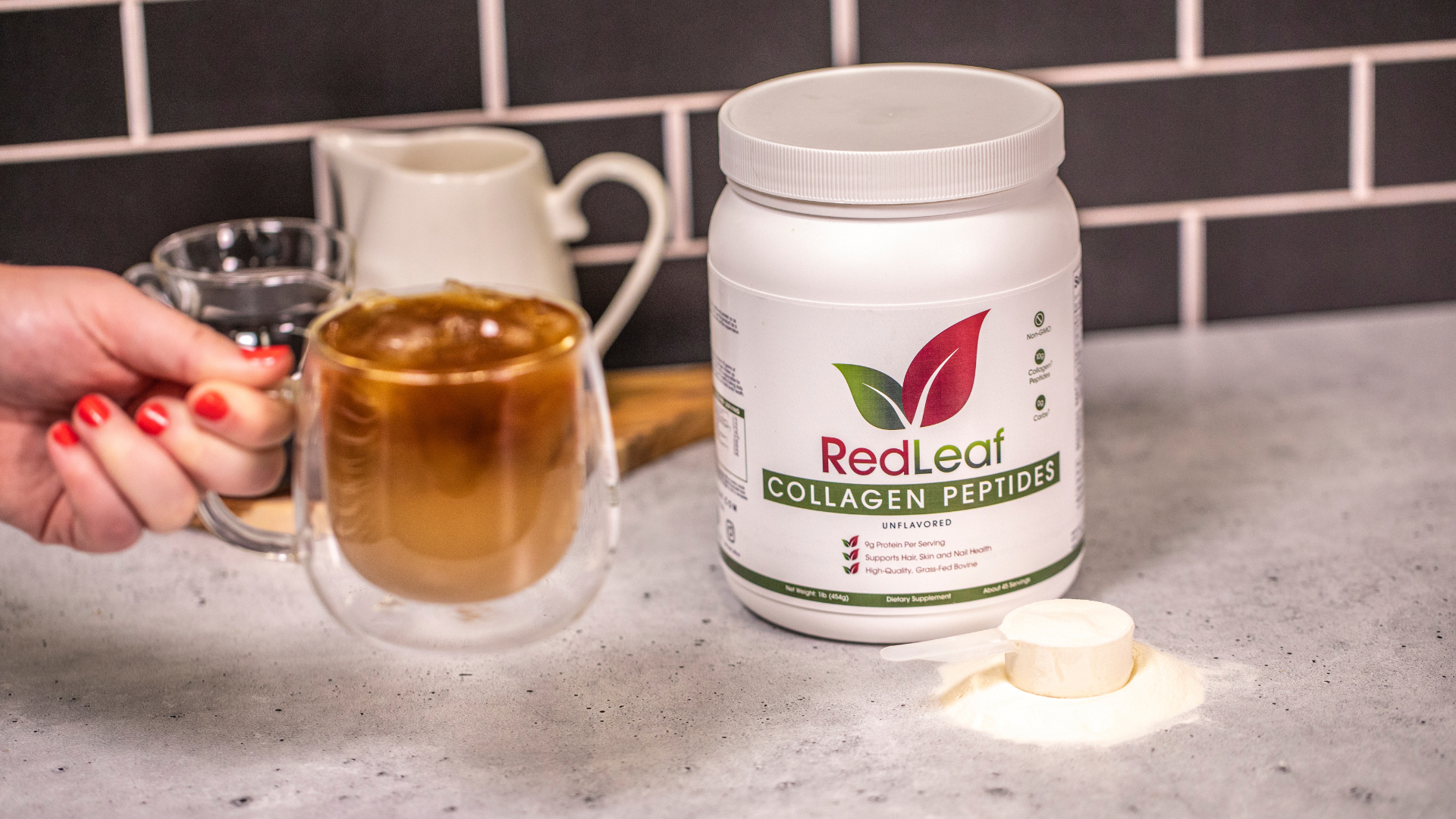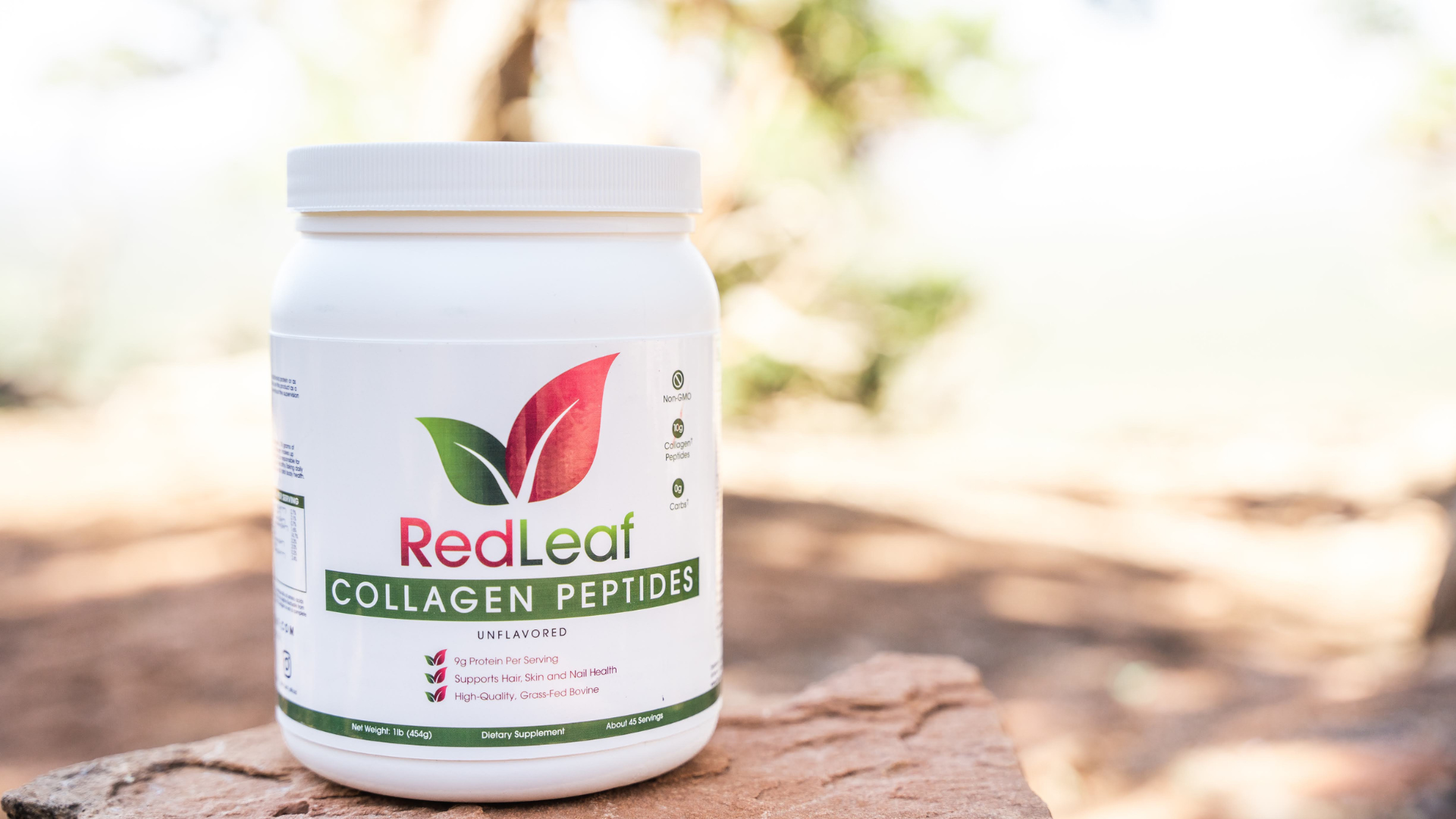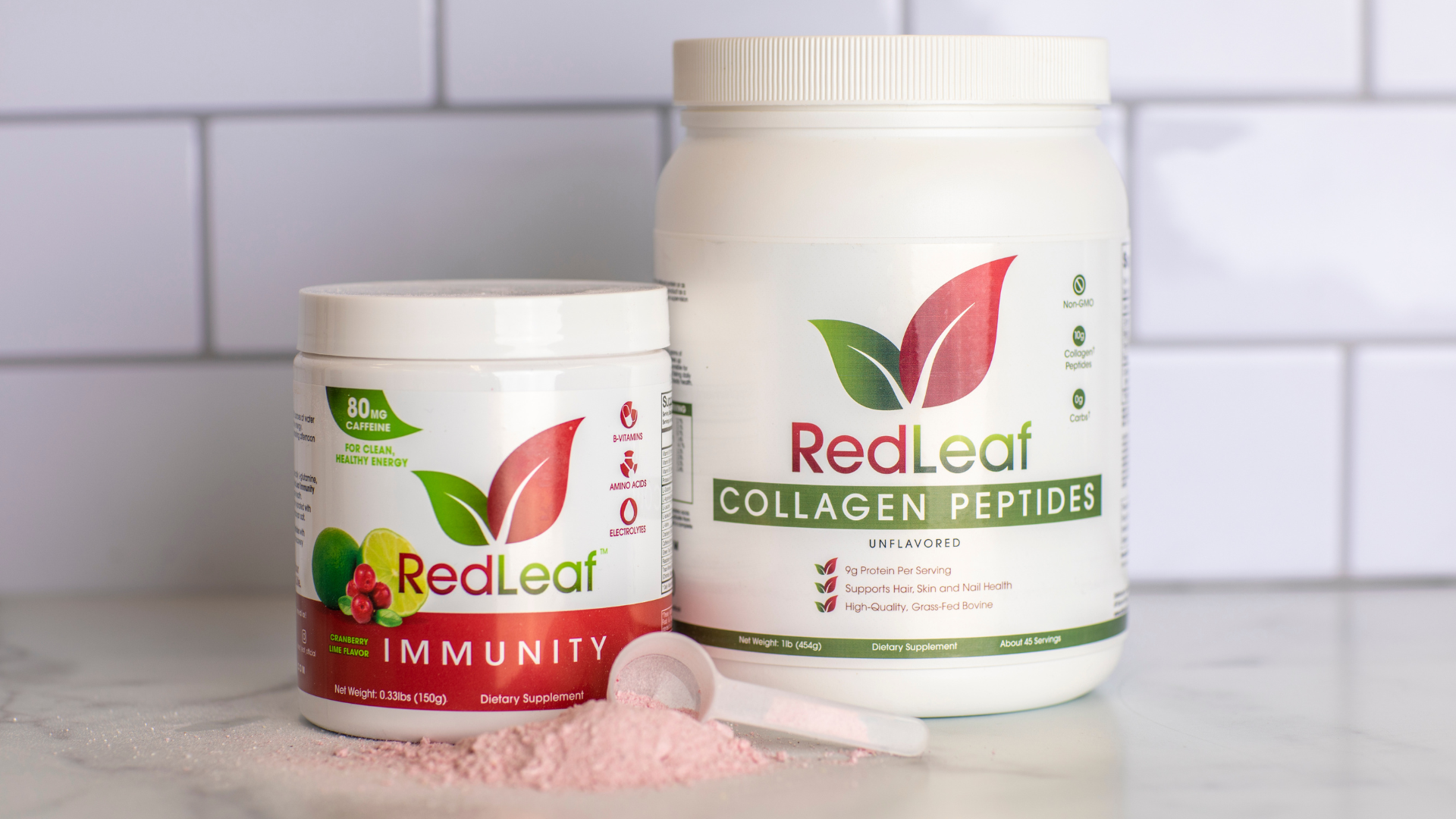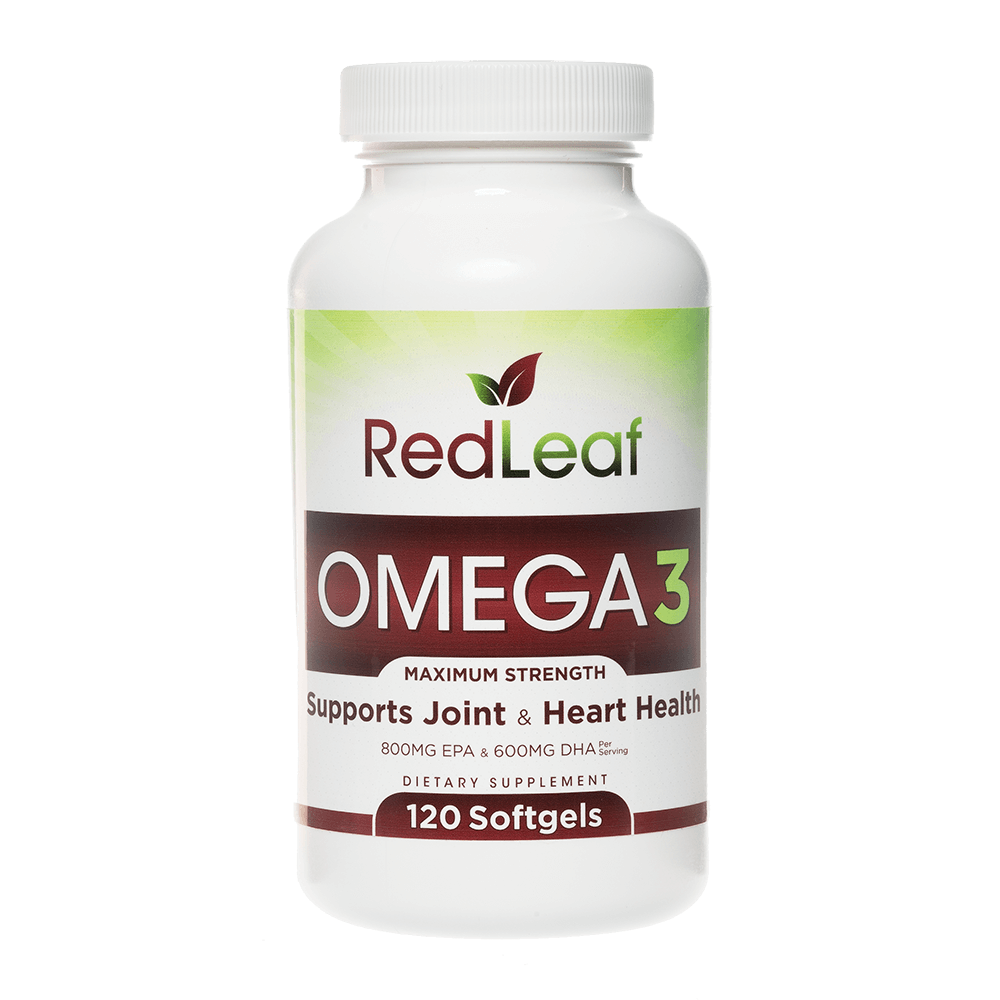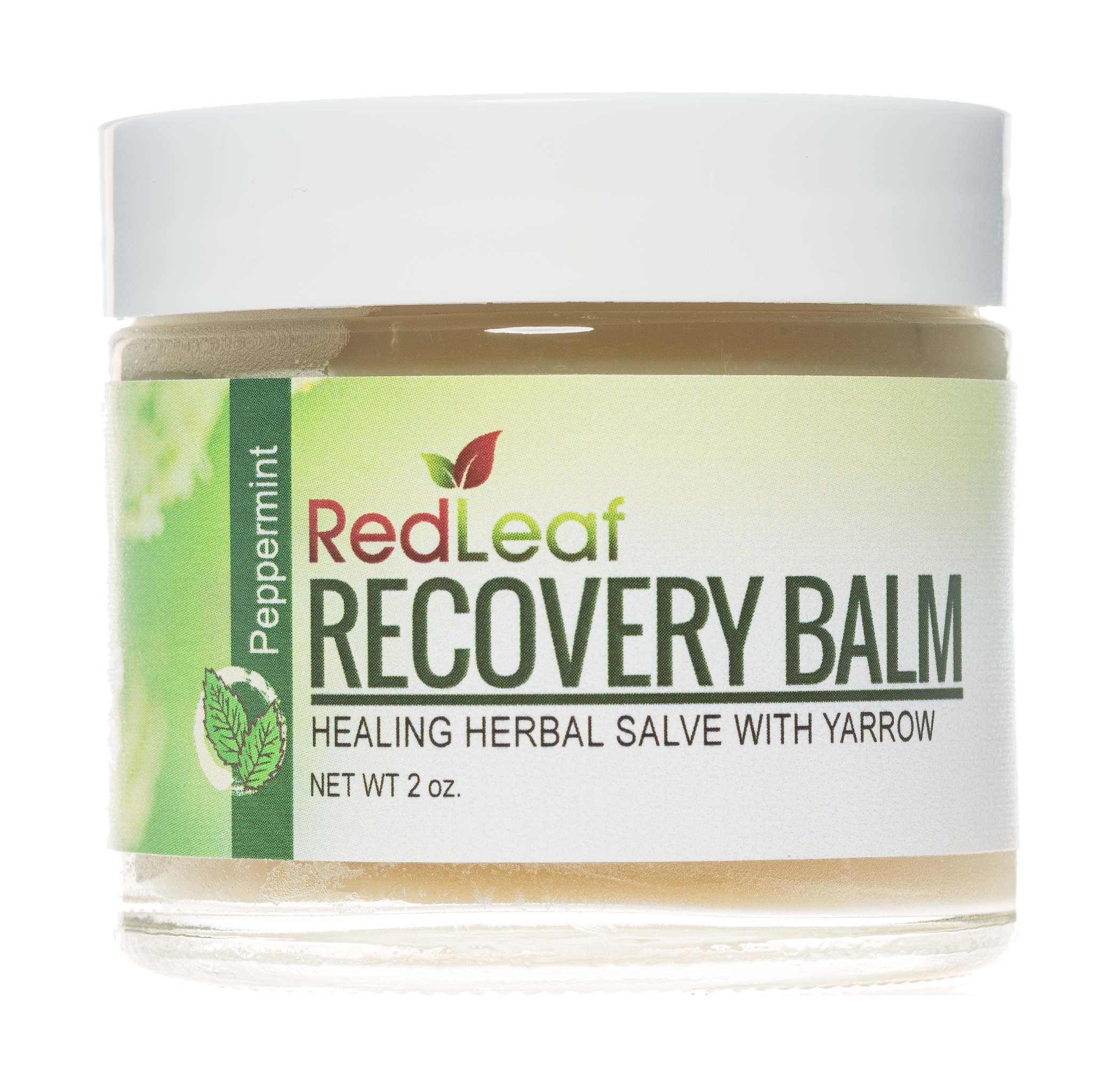Congratulations, you are expecting a little bundle of joy! As you prepare to welcome a new life into the world, now is the perfect time to evaluate your health and nutrition habits. While pregnancy is incredible, it can be really hard on your body. It is important you are getting the nutrients you need, so you can ensure a healthy pregnancy and support your growing baby. Among the many supplements recommended to pregnant women, collagen is among the most popular. So, can you take collagen while pregnant? Let’s find out!
This article will break down the importance of collagen and what it does for our bodies. Even more importantly, we’ll discuss the role of collagen in your pregnancy.
What is Collagen?
First, let’s start from the beginning. Collagen is the most abundant protein in our bodies. In fact, almost one-third of our body’s total protein is collagen. Used by our bodies to make connective tissue, collagen is found in our bones, skin, muscles, tendons, and cartilage. It also is found in our organs and blood vessels.
As we age, our production of collagen slows. This can be exacerbated even more by lifestyle choices like smoking or excessive sun exposure. Many people turn to outside sources to increase their collagen intake. External collagen can be obtained from foods, like animal meats and fish. Great sources of collagen include:
- Bone broth
- Beef, chicken, or pork with skin
- Fish
- Gelatin
- Organ meats
- Eggs
- Dairy products
What are Collagen Peptides?
Another way to get collagen is through powdered supplements, like Red Lead Collagen Peptides. To create collagen peptides, whole collagen proteins are broken down, or hydrolyzed. The hydrolyzation process makes the collagen more easily absorbed by our bodies. Most often, the collagen is derived from bovine or marine animals. The body produces over 28 types of collagen, but 5 are most commonly used in supplements:
- Type I – Makes up 90% of the collagen in our bodies. It provides structure to our skin, bones, and connective tissue.
- Type II – Located in our elastic cartilage, it provides support for our joints.
- Type III – The second most prevalent type in our bodies. It can be found in our muscles and organs, including the uterus.
- Type V – Found in the eyes, bones, muscles, and organs. It also helps to create the cells in the placenta.
- Type X – Used in joint cartilage and bone formation.
What Are The Benefits of Collagen Peptides?
Now that we know what collagen peptides are, let’s discuss why they are beneficial. The benefits of collagen peptides are well known in the health and wellness industry. Some of them include:
- Improves skin hydration and elasticity
- Regenerates damaged tissues
- Aids in wound healing
- Provides structure and strength to bones
Another bonus of collagen peptides is the convenience. You can seamlessly mix collagen peptides into most dishes for a quick and easy source of quality protein.
Benefits of Collagen in Pregnancy
While collagen is important during all walks of life, it plays an even more vital role in pregnancy. Good nutrition is crucial during pregnancy since a woman’s growing body must support the nutritional needs of both her and the baby. This means increased needs for many nutrients, including collagen. Let’s explore some of the ways collagen can support you and your baby in pregnancy.
Helps Reach Your Protein Needs
Pregnancy is a time of rapid growth and development. In order to meet the needs of both growing bodies, adequate protein intake is essential. Protein is a nutrient used by the body to grow and repair cells. Certain proteins, like collagen, provide structure to our bones and muscles, while other proteins, like enzymes, have functional roles.
The Recommended Dietary Allowance (RDA) for protein during pregnancy is 1.1 gram protein/kg of body weight/day. This equates to about 75 to 100 grams per day. This figure may increase even more depending on physical activity level or other health conditions.
Many women find it challenging to meet this protein recommendation in their pregnancies. This may be due in part to nausea or loss of appetite. Red Lead Collagen Peptides provide 9 grams of protein and 10 grams of type 1 and type 3 collagen per serving, making them a convenient and tasty way to increase your intake of both essential nutrients.
Supports Your Stretching Skin
As your baby grows, your belly gets bigger, meaning your skin is stretching more than it likely ever has. The benefits of collagen to skin health have been well established in scientific literature. Collagen supplementation has been shown to improve skin hydration, elasticity, and density.
Stretch marks are a common concern of pregnant women. Stretch marks are a type of scar that develops when skin is stretched quickly. This causes the elastin and collagen in our skin to rupture, resulting in stretch marks. Extra collagen during your pregnancy will help your skin cope with the extra stretching potentially reducing the likelihood of stretch marks.
Your belly isn’t the only part of your body that expands during pregnancy. The tissue in your reproductive tract and pelvic floor are growing and changing to accommodate the baby and prepare for birth. In fact, your uterus at term contains a staggering 800% more collagen than when in a non-pregnant state. Collagen is essential in providing structure and strength to these tissues during pregnancy. Adequate collagen intake ensures your cervix and uterus are strong enough for labor and may reduce your risk of tearing during delivery.
Supports Your Joints and Bones
Pregnancy can put a lot of extra pressure on your joints. Many women feel pain in their back, hips, and even wrists.This can be due in part to weight gain and pregnancy hormones.
Collagen is the main component of connective tissue which keeps our cells glued together. Hydrolyzed collagen has been found to relieve pain in those suffering from osteoarthritis, a degenerative joint disease. Omega 3 fish oils also help to soothe joint pain by reducing inflammation. Right now, on redleafnutrition.com, you can get $10 off collagen peptides when you buy at least one Omega 3!
Like our joints, bones are also composed of collagen. Since collagen production decreases as we age, bone density tends to follow suit. This holds true in pregnancy as well. Bone density has shown decline to by upwards of 3.5% during pregnancy. Supplementing with collagen peptides can help to prevent further bone loss and repair damaged tissue.
Fetal Health
Even your baby will benefit from collagen peptides. The amino acid glycine makes up roughly a third of collagen’s structure. During pregnancy, our glycine needs skyrocket. Glycine is used to develop a baby’s bones, tissues, and organs. It is even needed for the formation of DNA.
Is Collagen Safe in Pregnancy?
Now that you know all the benefits, you are probably wondering if you can take collagen while pregnant safely. Since collagen peptides are just a source of protein, they are generally considered safe to take during pregnancy. But as always, consult with your healthcare provider before beginning a new supplement.
It is important to note there is limited research about collagen supplementation during pregnancy. However, a recent study did find improvements in quality of life, wound healing, and protein levels in pregnant and postpartum women after supplementing with collagen peptides. The women in study reported no adverse side effects.
Best Collagen to Take While Pregnant
If you chose to take collagen while pregnant, remember not all collagen peptide supplements are created equally. When choosing a collagen supplement, always look at the source of collagen. Collagen peptides derived from bovine is the best choice during pregnancy as marine collagen may contain high levels of unwanted mercury. Red Leaf Collagen Peptides provides 10 grams of collagen peptides sourced from non-GMO, grass-fed bovine in the United States.
A quality collagen peptide supplement will not have any unnecessary fillers or additives. Red Leaf Nutrition prides itself on providing clean and high-quality products. It is also flavorless, so it can be added to foods or beverages like coffee, water, or oatmeal without changing the taste. Since it is hydrolyzed, it dissolves easily and is quickly absorbed by your body.
Final Thoughts
So, can you take collagen while pregnant? The short answer is yes, but always talk with your healthcare provider before starting any new products in pregnancy.
Red Leaf Collagen Peptides are a convenient and delicious way to meet your health and nutrition goals. It provides a clean, high-quality source of both collagen peptides and protein that will support you and your baby in pregnancy and beyond.

